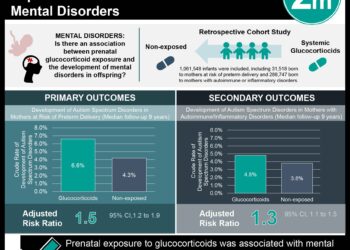Transglutaminase 2 inhibition attenuates mucosal injury in patients with celiac disease
1. ZED1227, a selective oral transglutaminase 2 inhibitor, was shown to reduce gluten-induced deterioration of intestinal mucosa in patients with celiac disease.
2. No significant differences in adverse events were experienced between experimental groups.
Evidence Rating Level: 1 (Excellent)
Study Rundown: Patients with celiac disease express higher than normal levels of transglutaminase 2, the autoantigen responsible for orchestrating autoimmune intestinal damage in response to gluten ingestion. ZED1227 is an orally ingested capsule that specifically inhibits transglutaminase 2 to limit the activation of autoimmunity. In phase 2 randomized control trial evaluated the efficacy and safety of different ZED1227 dosages or placebo treatment. All three experimental groups receiving ZED1227 showed attenuation of intestinal damage, at the end of the six-week gluten challenge, as they demonstrated smaller changes in their villus height to crypt depth ratio. Moreover, patients receiving ZED1227 also showed reduced intraepithelial lymphocyte density, reduced celiac symptom index scores, and improved scores in the celiac disease questionnaire. Adverse events were reported at a similar proportion across all groups outside of an increased reporting of rash in the highest ZED1227 dosage group. This study was limited by a loss of several patients to follow-up, a short six-week duration, and the lack of real-world applicability as gluten ingestion was controlled. Nonetheless, this study provided a strong basis for the continued investigation of ZED1227 as an effective therapeutic in improving the quality of life of patients with celiac disease.
Click to read the study in NEJM
Relevant Reading: Identification of tissue transglutaminase as the autoantigen of celiac disease
In-Depth [randomized controlled trial]: This open-label, multicenter, phase 2 randomized control trial enrolled 160 patients. Patients between 18 and 65 years of age and diagnosed with celiac disease positive for HLA-DQ2 or HLA-DQ8 genotypes for at least 12 months were included in the study. Patients with positive serologic testing for transaminase 2 IgA were excluded from the study. Patients were randomized in a 1:1:1:1 ratio to receive either 10 mg of ZED1227, 50 mg of ZED1227, 100 mg of ZED1227, or placebo, respectively. Patients were instructed to ingest ZED1227 or the placebo orally, then ingest 3 g of gluten prior to breakfast every day for 6 weeks. Patients otherwise had to adhere to a strict gluten-free diet. After the 6-week study duration, patients underwent endoscopy with biopsy of the duodenum for histology. The primary outcome was the attenuation of gluten-induced deterioration of the intestinal mucosa. The deterioration was determined by the ratio of villus height to crypt depth in the duodenum through histological analysis. While patients in the placebo group exhibited a decrease in villus height to crypt depth ratio (estimated change, -0.61; 95% confidence interval [CI], -0.78 to -0.44), patients receiving 100mg of ZED1227 experienced a smaller ratio reduction (estimated change, -0.13; 95% CI, -0.28 to -0.03). All three groups receiving ZED1227 experienced a significantly smaller change in ratio compared to the placebo group (P≤0.001). Experimental groups showed a smaller increase in intraepithelial lymphocyte density and an overall improvement in Celiac Disease Questionnaire scores compared to placebo. Adverse events of headache, nausea, diarrhea, vomiting, and abdominal pain were reported by 78% of patients and were equally reported across all groups; however, the 100mg ZED1227 group had an increased reporting of rash. Overall, the trial provided evidence for the continued investigation of ZED1227 in the treatment of celiac disease.
Image: PD
©2021 2 Minute Medicine, Inc. All rights reserved. No works may be reproduced without expressed written consent from 2 Minute Medicine, Inc. Inquire about licensing here. No article should be construed as medical advice and is not intended as such by the authors or by 2 Minute Medicine, Inc.



![No benefit with hydroxychloroquine (Plaquenil) over placebo in Sjogren’s Syndrome [JOQUER Trial]](https://www.2minutemedicine.com/wp-content/uploads/2014/07/Sjogren_syndrome_2-350x250.jpg)


![Active smoking cessation intervention may provide tangible results [Project CLIQ]](https://www.2minutemedicine.com/wp-content/uploads/2014/12/smoking-e1418644951268-75x75.jpg)


